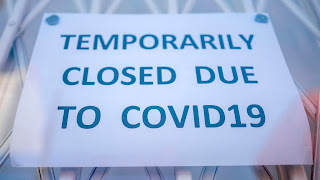Will the furlough scheme being extended until April 2021 provide enough job security for the UK?

Image source: Sky News The British furlough scheme, otherwise known as the Coronavirus Job Retention Scheme (JRS), was first announced in March, on the same day that a UK-wide lockdown was announced by PM Boris Johnson. The JRS entails that eligible workers can receive 80% of their wages for hours missed due to lockdowns, shielding, caring for the vulnerable or self-isolating, for a maximum of £2,500 a month. Employers did not have to contribute to the scheme until August unless the employee was flexibly furloughed (working certain hours but furloughed for the rest). The scheme was initially set to expire in May 2020 but was extended until October. It was then prolonged until March 2021 and has recently been extended for an additional month. These numerous extensions took place despite Chancellor Rishi Sunak expressing his unwillingness to ‘endlessly extend furlough’. So, how successful has the JRS been thus far? The HM Treasury has hailed it a success. In terms of its short...

